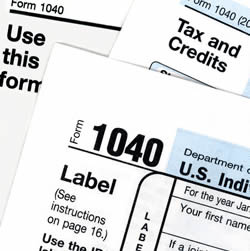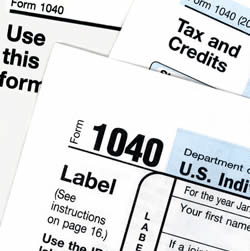On December 18, 2015, the President signed The "Protecting Americans from Tax Hikes Act of 2015 (PATH Act)" extending a package of expired or expiring individual and business tax provisions known as "extenders".
These extenders include numerous individual and business tax deductions, credits, and other tax provisions which have been around for many years, but have been long-treated as temporary, since they have always had a specified date of conclusion. For a number of years, Congress has temporarily extended these tax provisions, typically for just one or two years. This new legislation has extended these tax provisions retroactively to January 1, 2015. Some of the provisions were made permanent, while others have been extended either through 2016 or 2019.
Following is a summary of what we feel are the important tax law modifications included in this legislation:
Tax Extenders for Individual Taxpayers
The following provisions which affect individual taxpayers have been extended permanently:
- The law allowing tax-free distributions to charity from an IRA of up to $100,000 per taxpayer per year, for taxpayers that are at least age 70 1/2. Related read: New Legislation Includes Tax-Free IRA Distribution
- The $1,000 Child Tax Credit for taxpayers with dependent children younger than age 17 and income below a certain threshold, beginning at $75,000 (if single), $55,000 (if married filing separately), and $110,000 (if married filing jointly).
- The American Opportunity Credit for tuition and related expenses of post-secondary education for taxpayers with income below certain amounts; The AOTC is a credit of $2,500 for various tuition and related expenses for the first four years of post-secondary education. It phases out for AGI starting at $80,000 (if single) and $160,000 (if married filing jointly). This break was set to expire after 2017. The Act makes the AOTC permanent.
- The $250 deduction for teachers for expenses paid for books, supplies and materials/equipment that is used in the classroom. Also, beginning in 2016, the $250 cap will be indexed for inflation and professional development expenses will be deductible under this provision.
- The option to take an itemized deduction for sales taxes instead of deducting state and local income taxes
The following individual tax laws have been extended through 2016:
- The credit for nonbusiness energy property, such as energy efficient home improvements, which is capped at $500 for a taxpayer's lifetime;
- The exclusion from gross income of up to $2 million of discharged indebtedness from a principal residence;
- The deduction for mortgage insurance premiums; and
- The allowance of qualified tuition and related expenses as an "above the line" deduction;
Tax Extenders for Business Taxpayers
The following items have been extended on behalf of businesses have been permanently extended:
- The research credit has not only been permanently extended, but is now allowable against other types of taxes.
- Small business with gross receipts of less than $50 million can take this credit against their Alternative Minimum Tax liability;
- A small startup business with less than $5 million of gross receipts can take up to $250,000 of this tax credit against their share of employer social security taxes, or "FICA".
- Small business with gross receipts of less than $50 million can take this credit against their Alternative Minimum Tax liability;
- The five year built-in-gain recognition period for S corporations (shortened from 10 years);
- The 100% exclusion of gain for stock held by qualifying small businesses;
- 15-year straight line depreciation for qualified leasehold improvements, qualified restaurant buildings and improvements, and qualified retail improvements;
- Section 179 expensing of up to $500,000 of capital expenditures, subject to reduction once capital expenditures exceed $2,000,000. These amounts will now be adjusted annually for inflation;
- Beginning in 2016, heating and air conditioning units are eligible for Section 179 expensing;
The following items have been extended on behalf of businesses have been extended through 2019:
- 50% bonus depreciation is allowable for tax years 2015 through 2017:
- 40% bonus depreciation will be allowed for 2018; and
- 30% bonus deprecation will allowed for 2019;
- Allowable first year depreciation for certain cars and trucks has increased by $8,000 through 2017, which then declines to $6,400 for 2018, and to $4,800 for 2019;
- The work opportunity tax credit (WOTC);
Finally, the deduction for energy efficient improvements (also known as Section 179D) that are made to a commercial building's lighting, heating, cooling, ventilation, and hot water systems has been extended through 2016.
In addition to the above changes, many other items have also been extended retroactively from the beginning of this year.
For some taxpayers, you may need to act soon (by December 31) to benefit from these breaks on your 2015 tax return. And keep in mind, that many breaks with more limited applicability have also been extended; it’s possible some of them could also benefit you. As well,, many breaks are subject to a variety of rules and limitations.
Tax law, credits, provisions, extenders and deductions can be confusing. The Zinner tax team and management consultants can help prepare you and your business for optimum performance. We are ready to help; contact me at 216-831-0733 or gsigman@zinnerco.com for a no cost, no obligation consultation





